Walk down any grocery aisle and you’ll see rows of shiny bottles promising better health, more energy, stronger immunity — all in one daily pill.
But if modern multivitamins worked the way they’re marketed, why are chronic fatigue, hormonal issues, and nutrient deficiencies skyrocketing?
Despite decades of supplement use, people are sicker than ever. Something isn’t adding up.
It’s not that nutrients don’t matter — it’s that we’ve forgotten where they actually come from.
Our ancestors didn’t wake up and pop a capsule. They ate their vitamins — straight from the land, the sun, and the animal.
The Supplement Illusion

The idea of “insurance in a bottle” feels comforting — but it’s built on convenience, not biology.
Most modern multivitamins are synthetic replicas of real nutrients. They’re made in factories using isolated compounds that don’t act the same way as the vitamins found in food.
They’re missing enzymes, cofactors, and the fat-soluble synergy that makes nutrition work in the human body.
That’s why you can take handfuls of pills and still feel tired, anxious, or inflamed. The body doesn’t recognize these isolates as true nourishment — it recognizes them as foreign.
How the Multivitamin Industry Began
The first synthetic vitamins appeared during the early 20th century, when scientists figured out how to extract single molecules from foods and reproduce them in labs.
By the 1940s, companies realized they could bottle and sell “nutrition” — mass-produced, shelf-stable, and profitable.
The problem? Food isn’t meant to be taken apart like that. When you isolate a nutrient from its natural context, you lose the complex web of interactions that make it effective.
Our ancestors didn’t think in terms of Vitamin A, C, D, or B12. They thought in terms of food that gave life — liver, eggs, marrow, sunlight, and wild plants.
The Science: Why Synthetic Vitamins Don’t Work
Multiple large-scale studies show that most multivitamins don’t reduce disease risk — and in some cases, may do harm.
The reason is simple: the human body doesn’t absorb or utilize synthetic isolates the same way it does nutrients bound in real food.
Take Vitamin C, for example.
Synthetic vitamin C (ascorbic acid) is just one molecule of what naturally occurs in foods like camu camu, acerola cherry, or beef liver. In real food, vitamin C is surrounded by enzymes, bioflavonoids, and co-nutrients that make it more bioavailable.
Same story with B vitamins, iron, and vitamin A. Isolated lab forms are often poorly absorbed and can even create imbalances over time — flooding the body with one nutrient while depleting others.
Modern nutrition focuses on quantity.
Ancestral nutrition focuses on synergy.
The Nutrient Synergy Modern Science Forgot
Every nutrient works in partnership with others — this is what scientists call “nutrient synergy.”
For example:
- Vitamin D helps absorb calcium, but without Vitamin K2 (found in animal fat), that calcium can end up in arteries instead of bones.
- Iron is absorbed better with Vitamin C, but without enough copper, it can create oxidative stress.
- Zinc and magnesium compete for absorption — balance matters more than dosage.
That’s the flaw in modern supplements: they isolate and overload, instead of supporting the system.
The body doesn’t need more pills — it needs communication between nutrients the way nature designed them.
What We’ve Lost From Our Water

Our ancestors didn’t just eat differently — they drank differently too.
The spring water they gathered from rivers, wells, and glacial runoff was rich in magnesium, calcium, silica, and trace minerals naturally filtered through rock and earth. These minerals played a major role in hydration, electrolyte balance, and nervous system health.
Today, most tap and bottled water is stripped clean through processing, filtration, and chlorination. Even “purified” water often lacks the very minerals that once made it healing.
That’s one reason so many people are magnesium deficient — not because they aren’t eating well, but because their water no longer nourishes them.
To live ancestrally today means remembering this too:
Hydration isn’t just about water. It’s about minerals that carry life through it.
What Our Ancestors Did Instead
Our ancestors didn’t supplement — they nourished.
They ate nose-to-tail, consumed organ meats, drank raw milk, and lived under the sun. Their “multivitamin” wasn’t synthetic — it was built into their way of life.
- Liver was their Vitamin A, B-complex, and iron.
- Bone marrow was their collagen and minerals.
- Egg yolks delivered choline and fat-soluble vitamins.
- Sunlight activated vitamin D naturally, balanced by K2 from animal fats.
- Seafood supplied iodine, zinc, and selenium.
- Spring water replenished minerals and electrolytes from the earth itself.
They didn’t need a supplement because their environment provided what our modern one lacks: real food, natural light, clean water, and rhythm.
The Real “Multivitamins” of Nature
If you’re rebuilding your health through an ancestral lifestyle, you don’t need a drawer full of synthetic bottles. You need nutrient-dense food.
Here are nature’s real multivitamins:
- Grass-Fed Beef Liver Capsules (Heart & Soil) — nature’s richest source of bioavailable vitamins A, B12, folate, and iron.
- Colostrum Powder (ARMRA) — immune-supporting peptides, growth factors, and gut repair compounds.
- Cod Liver Oil (Rosita) — a clean source of natural vitamins A and D in their active forms.
- Raw Dairy (buy locally if you can) — provides calcium, magnesium, and enzymes that aid absorption.
- Trace Mineral Drops (ConcenTrace) — help remineralize purified or filtered water.
(As an Amazon Associate, I earn from qualifying purchases. These products are recommended because they align with a whole-food, ancestral philosophy that I use personally.)
Reclaiming Ancestral Nutrition
We don’t have a vitamin deficiency. We have a real food deficiency.
The human body doesn’t thrive on synthetic isolates — it thrives on nutrient synergy, sunlight, and animal foods that carry the intelligence of life itself.
Our ancestors didn’t count macros or measure milligrams. They trusted nature’s design — and they thrived for thousands of years without a supplement aisle.
Maybe it’s time we return to that wisdom.
Health isn’t about chasing pills.
It’s about remembering that food builds you. Water restores you. Sunlight recharges you.
Pills can’t replace that.
Sources
- Environmental Working Group – The Loss of Minerals in Drinking Water
- NIH – Dietary Supplements and Chronic Disease Prevention
- Cochrane Review – Multivitamins and Mortality
- PubMed – Vitamin Bioavailability in Whole Foods
- Weston A. Price Foundation – Fat-Soluble Vitamins and Nutrient Synergy

Leave a Reply